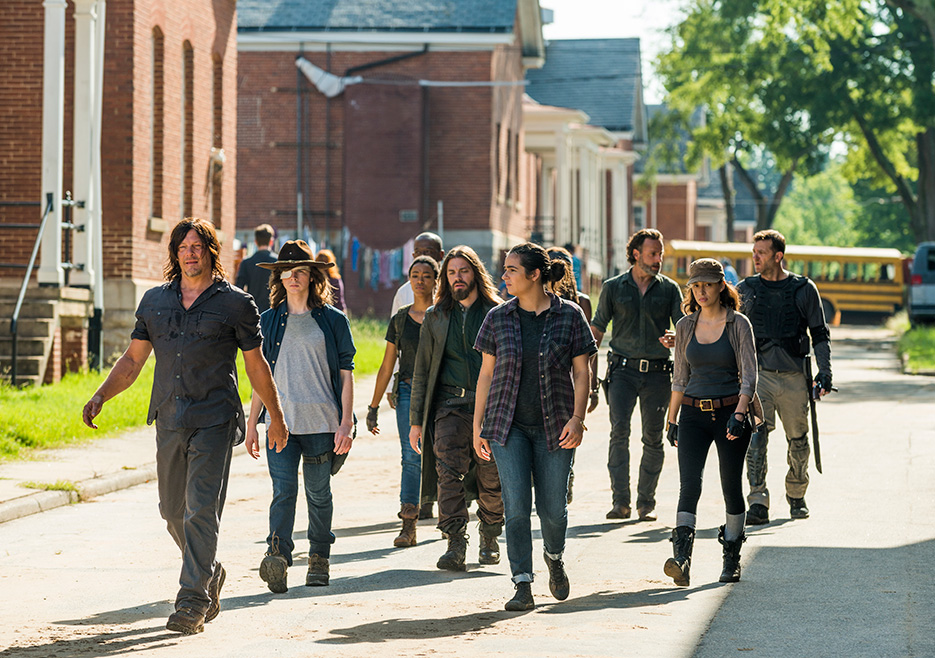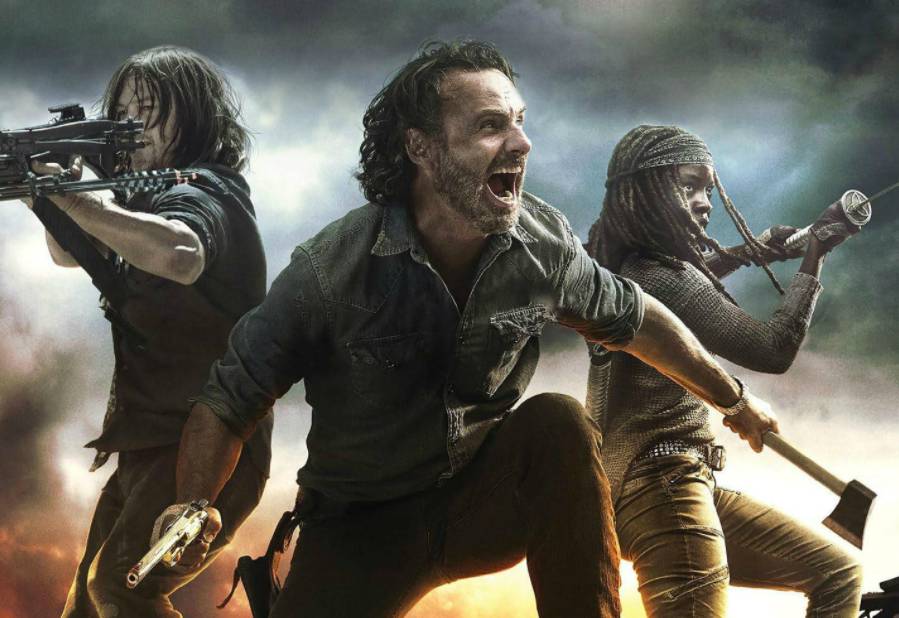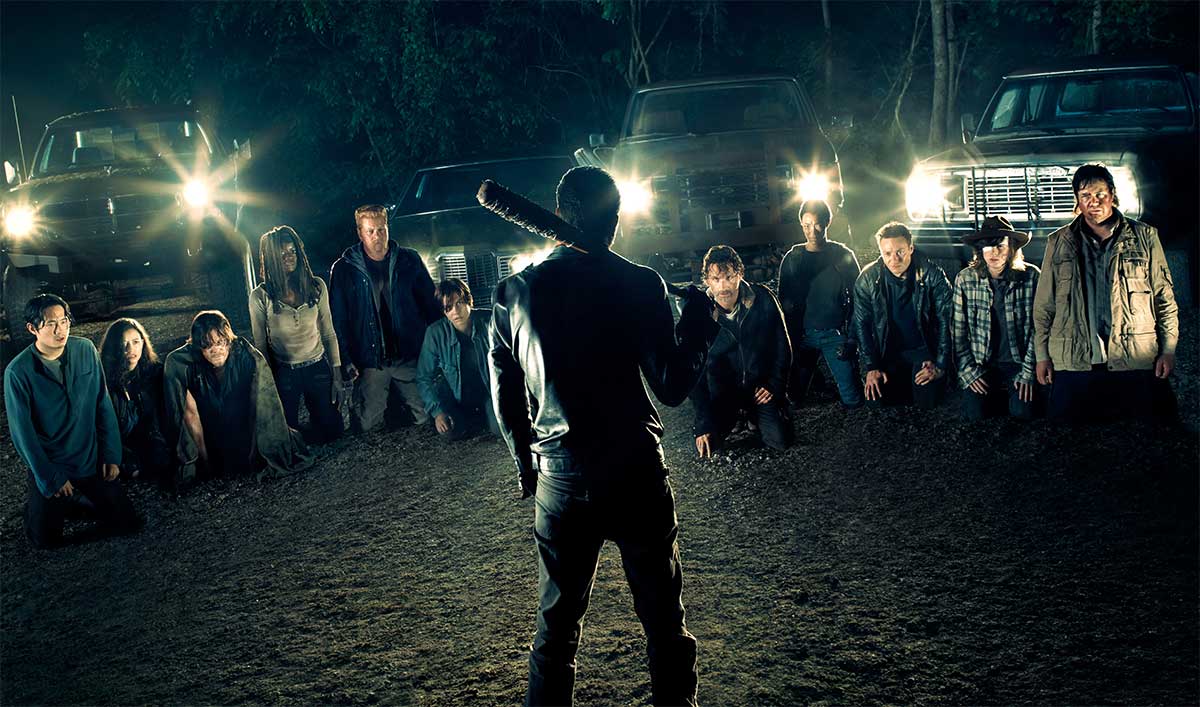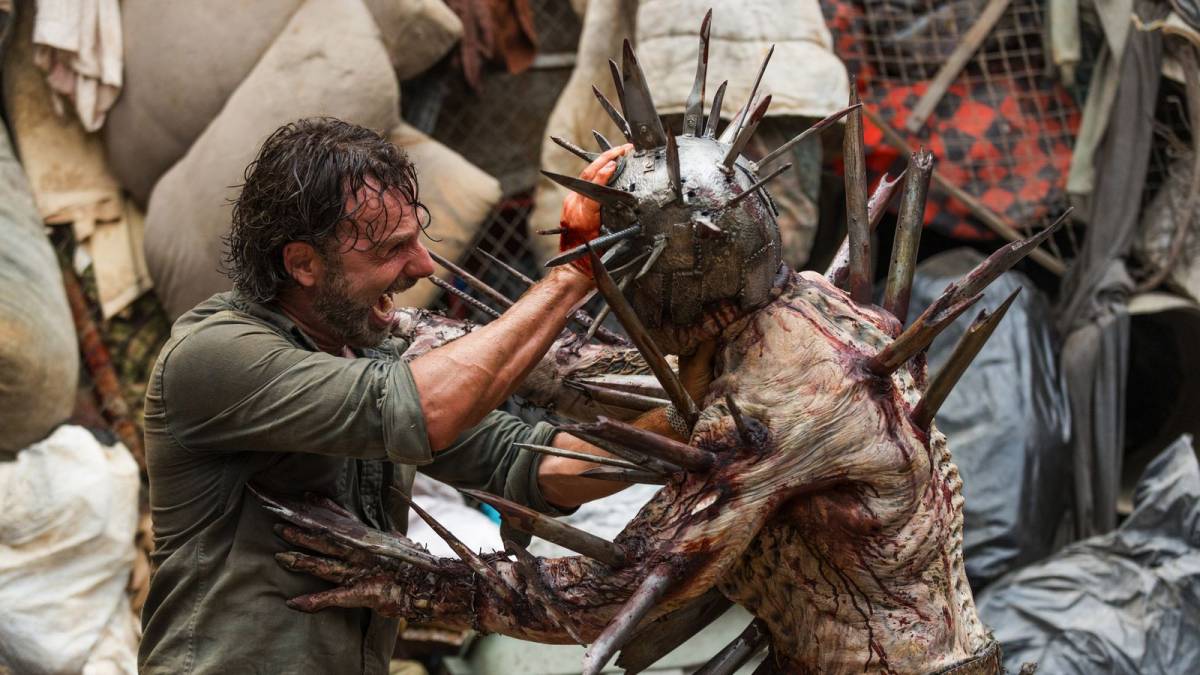When the comic-based series began its run on October 31, 2010, certainly no one envisaged the level of success it went on to find. The series, now on its fourth showrunner, has taken some fairly controversial turns over the course of 115 episodes. So now, eight seasons in, what exactly is chasing away The Walking Dead fans?
Déjà vu

The amount of repetition occurring in this show is just execrable. Before the writers set up a conflict between the established characters and a new antagonist, you can easily guess what’ll inevitably happen. It’s as though somewhere along the way, someone in the writer’s room stood up and said, “Well, this worked before. Let’s do it again and hope no one notices.”
Much like a zombie, The Walking Dead has long since decomposed, becoming more of a tangled character study than a fully realized saga. There’s no real, discernible ambition or drive for this television broadcast anymore. It’s become a cop out, clinging to basic, primitive narratives.
Overall, it’s a black and white, good vs. evil set up, wherein the characters are faced with blurring the lines in order to accomplish something that loosely defines who they are and what purpose they serve. In my opinion, I find this indicative of the show’s inability or reluctance to push forward.
Filler

I’m not of the opinion that every episode needs gallons of blood, zombies in every frame, expensive Michael Bay explosions or some form of badassery. Downtime in a series is crucial for allowing the audience time to absorb what’s happening. Why, though, is virtually every episode filler? Bates Motel and Sons of Anarchy are shows that have less episodes per season and yet, still manage to keep up with their pacing and storytelling.
Most, if not all, of AMC’s television series’ are designed to be slow burn and grounded in as realistic a way as desired by those who work tirelessly to bring them to our screens. That sort of thing doesn’t work for a program of The Walking Dead’s nature.
Separation

Aside from Rick Grimes in the pilot episode, a lot of the earlier characters were kind of a package deal. It was a multifarious ensemble cast of characters, banding together from different walks of life. They’d tackle the situation from different angles and had conflicting opinions. Once the characters were separated, it was suspenseful waiting for them to find one another along the way, or die trying.
Eventually, it became an ongoing thing for these characters to find one another, just to go off again and again, taking away from the effectiveness and giving way to predictability. Now they rely heavily on separating everyone, utilizing it as a means to flesh out newbies, because they can no longer find any other way of developing characters or furthering the plot.
It’s a waste to have a cast of varying talent and not use them in favor of background characters only given or two lines of dialogue, whenever the writers want throw in another town-wide massacre, but haven’t anyone important to spare.
Killing Characters Simply for Shock Value
Robert Kirkman, Scott Gimple and virtually everyone else involved with this show has always made the claim, “No one is safe.” It was interesting to hear the first couple of times, until it became as old as the promises made by several cast members. Every. Single. Season. “This is the best, it’ll be incredible,” blah. They’d given us many episodes that’ve contrarily proven otherwise.
Character arcs and specific deaths were taken from the comic books and given to different characters. A specific season 7 death ruined the show for supposed fans, who should’ve known the tragic comic book moment would be adapted exactly as it was in print. After that death, there came more and more, some of which were undeniably for shock value.
They make it a point to defend their choices, but try as they may, there’s a number of obvious reasons that easily dispel the tired old excuse, “The story demanded it.” No, no it didn’t.
AMC
The Walking Dead does not belong on AMC, I’m sorry. The source material would make better sense for an HBO, Showtime, Cinemax or even Netflix series. Between the obnoxious, protracted commercial breaks and perplexing network restrictions, much is left to be desired. You don’t need swearing, sex, gory violence or nudity to make a good show, but in this case, it would make sense.
Why if I find so much wrong with The Walking Dead, do I continue to watch it? Maybe I’ve invested too much time in it, just to simply unhook myself. Maybe it’s being able to enjoy something with my family, something we looked forward to every Sunday night. I keep hoping the show will find its rhythm. There’s a lot of potential with The Walking Dead, but the way it’s been going, maybe it ought to end much sooner than later.
Some of the coverage you find on Cultured Vultures contains affiliate links, which provide us with small commissions based on purchases made from visiting our site.



